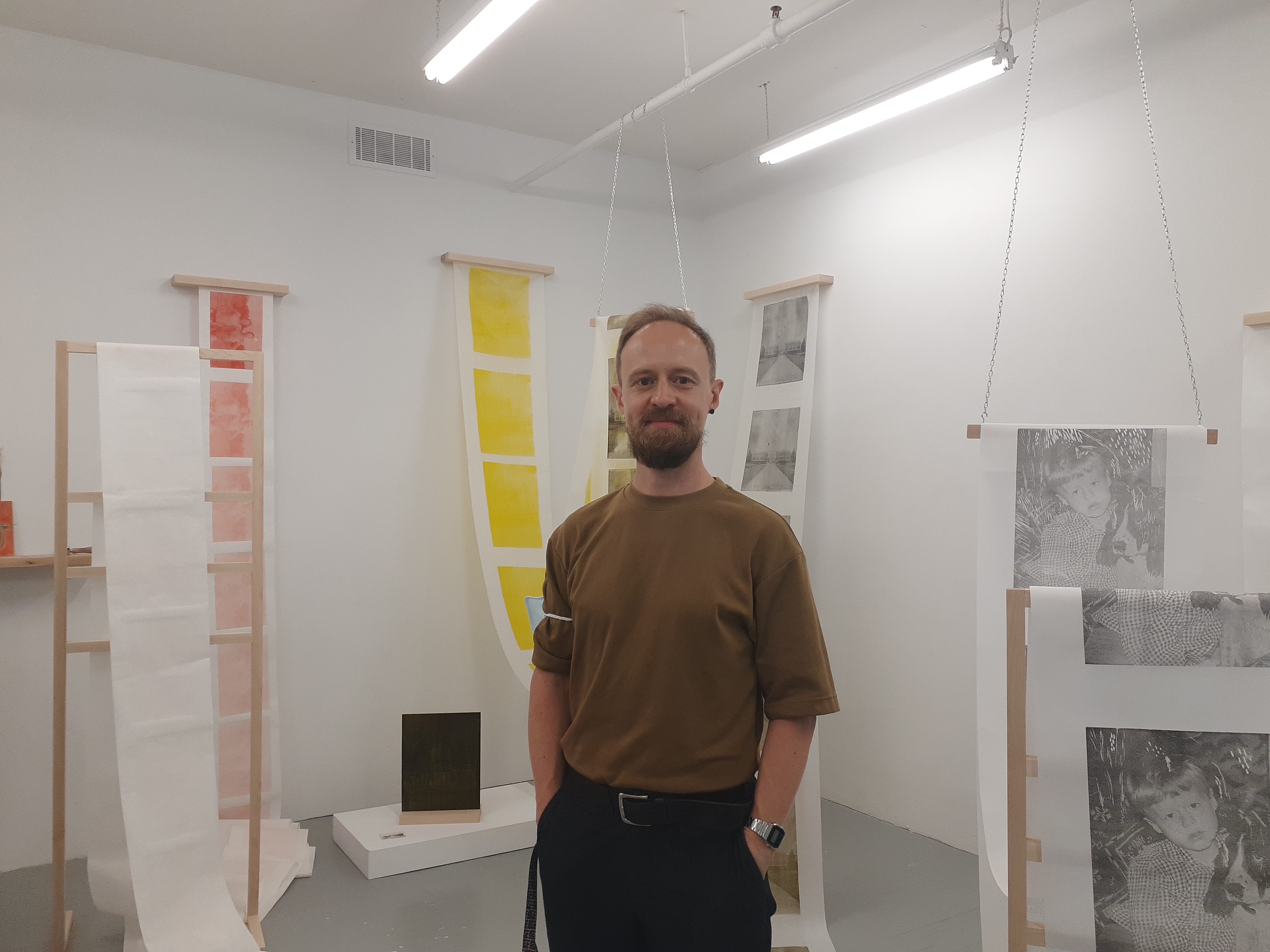Beyond the Ability to Respond

19.08.2009 Features
Felipe Kaizer
What if designers cannot really perceive the effects of their production in the world as political until they abandon preconceived ideas about right causes? In this article for Design Philosophy Politics, Felipe Kaizer takes a theoretical look at the designer's relationship with political action.
I
Now and then designers turn themselves to the question of the value of design's outcomes, and therefore to the purpose of their own activity. Designers explicitly point out the merit or demerit of the products of their work and justify their profession according to what is designed and how it is done. Through their speeches about the primacy of human needs, designers inevitably postulate what should be done and in what way. They agree about the priority or vanity of a certain cause, and so rank any new briefing in an ordered value scale. Their consciousness of the major problems - social injustice, environmental crisis, world poverty, among few others - gives birth to a sense of urgency, and requires every aware design professional to take prompt actions towards the resolution of real problems. From this higher point of view, professionals can manifest the need for a worldwide "reversal of priorities in favour of more useful, lasting and democratic forms."[1] As men, [2] finally, designers claim to be held responsible for whatever is designed and however some need is fulfilled or a problem solved.This is the way designers understand themselves as political animals. Due to their expertise they proclaim to hear, from the nature of their activity, the call to materially change the social and economical conditions of humanity, aiming at the right causes. To be political is then to righteously serve a worthwhile cause. We can see here how politics is understood: purely as mankind's way to organise itself in order to face ever new problems. Hence politics is merely a collective form of solving problems that concern us all. The rhetoric then needed and the inevitable clash of opinions are just intrinsic obstacles to the very best way to face difficulties. Thus any confrontation is part of the problem. By this, designers tend to think about politics as a clumsy tool for managing problems. The only reason for a political form of action is the will to offer everyone a chance to participate in the solution. If not a bad necessity, it is at least a very inefficient way to address any issue, pragmatically speaking.
Is then politics, for us, just the burden of being many? What if we cannot even talk about politics outside the realm of the noticeable human variety of ways of thinking? What if the concept of need is insufficient to grasp the political sense? What if we found in those intrinsic obstacles of political action the very purpose of politics? What if designers cannot really perceive the effects of their production in the world as political until they abandon preconceived ideas about right causes? We could never innocently ask those questions as they anticipate a review of politics in a broader sense.
II
Besides the conception of political action as a matter of solving big problems, some authors in the history of political theory approach the question outside the scope of problem-solving. One of those is Hannah Arendt, a German thinker born in 1906, who dedicated most of her writings to the dignity of politics. The main effort of her most conclusive book about the subject, The Human Condition, is to recover the special role that human action and politics have in our active life (vita activa), opposed to our contemplative life (vita contemplativa) or life of the mind.In this book, the vita activa is composed of three fundamental human activities: labor, work and action. The first correspond to the mere biological process of the human body; the second, to mankind's capacity to self-provide an artificial lasting world of things; the third, action, is "the only activity that goes on directly between men without the intermediary of things or matter, [and] corresponds to the human condition of plurality."[3] So only through action does politics offer the possibility to experience "the paradoxical plurality of unique beings." For Arendt the public realm is the only place where the authentic uniqueness of a who can be revealed.
Yet, human action is marked by an essential frailty that comes from the fact of being absolutely fleeting; as it is an immediate relation between men expressed solely through deeds and speeches, action is then sheer performance. Its 'products' vanish as soon as men come apart. It does not leave anything behind but stories. As pure happening, action cannot be justified as the best way of achieving goals and so the "specific meaning of each deed can lie only in the performance itself and neither in its motivation nor its achievement." [4]
But then if action and therefore politics does not aim at any problem, how come we still talk about it as a necessity? It is not true that action is aimless. Actually what we can learn from Arendt is that the raison d'?tre of politics is not merely instrumental, so to speak - what is at stake is human plurality and uniqueness. The sense of politics is not in its products but in its own happening.
However this conception of politics reveals its own problems. Having mentioned the intrinsic frailty of human affairs, we can see that action frequently frustrates us. One of the most outstanding troubles is that action always "acts into a medium where every process is the cause of new processes" [5] the so called web of relationships. Thus action is unpredictable. Even if one intentionally takes the 'right steps' in one direction, one cannot anticipate others' reaction to its initiative. The results of this are rarely welcomed.
One way out of this trouble is seeking for stability elsewhere. In order to find it, most of the times, we substitute work for action. The first, as conceived by Arendt, is responsible for everything belonging to the human material artifice - the world of tangible stuff. This activity is distinguished by the durability, security and predictability of its products, for all work is done for the sake of an end. Although we may find then a remedy for the frailty of politics, here there is a serious problem: action can never become a kind of work unless it loses the property of being an activity that finds an end in its own happening. Because an end both justifies and ceases the activity, action should go beyond any attempt to achieve a goal, or else it would always be, by its chance, 'waiting for orders' from another domain. Once a goal is achieved any activity depending on it cannot continue or can only continue with no more justification. If any work is then carried on for the sake of nothing it is considered to be absurd or suicidal.
Arendt's conception of politics is then of a possible activity that claims to be carried on for the sake of itself. Every act aims at its own spontaneous movement - it is its own 'final cause'. And since work must always foretell what is to be done, and therefore must attain an objective in order to be valid, acting is by far the only way to bring something new to the world. The new is by definition unpredictable, and so to that extent action can be seen as an actualisation of the human fact of nativity - as every newcomer, apart from being what it is, a man, is a who, unique and distinct from everyone who existed before or who will come.
So as politics is seen as the realm of self-justification in the face of all other activities the very idea of final cause is under question. Only politically can men freely decide about their lives apart from any rule, otherwise their capacity to freely choose for themselves would be at risk. The question about the nature of man, as about the final cause of any other entity, seems to be a misconjecture in this case. The Arendtian concept of politics touches at heart the sovereignty problem but not without precedents. The origins of a 'politics by itself' conception can be traced way back to Aristotle, more than 2,300 years ago.
The primacy of politics is foreseen by the Greek philosopher throughout his speculation about final causes of things. Grossly speaking his teleology ('telos' Greek for 'end') shows us that if we do something for the sake of another thing, and then we do this other thing for the sake of a third thing, and so on, there must be something that puts an end to this infinite series that could be said to be done for the sake of itself. Otherwise our drive to do anything "would be empty and vain". Aristotle's first guess is that politics is this kind of thing.
Here we find a core paradox within the notion of final cause: the request for an activity that finds in its own performance its end - that is to say, that has no end. According to this to even imagine that human political action has no end we have to abandon the hegemony of the functionality of means-to-an-end way of thinking. On the contrary, in order to address politics every time as a problem-solving mechanism, a dogmatic logic in favor of a cause will always be needed - a logic that states exclusively what is the problem to be solved. But testifying that a major cause is the cause, standing above any discussion, is assuming a priori what we usually call an ideology.
Ideological thinking can persist as our basic reference to politics only because it is hard for us to cope with reality each and every time unarmed with secure answers. Without any previous narrative, facts require from us much closer analysis and reflective judgments, while they can only offer more doubts. To move in a world without any certainty is almost despairing and we usually seem to escape from one ideology to another, taking care only to leave our agreement about the existence of final causes intact.
III
What designers do almost every time they resume the 'designers' responsibility' discussion is to adopt an ideological point of view, despite what can be said about the particular chosen 'Great Cause'. Actually this is not absurd; it is just one way to talk about the legitimacy of design activity. Once designers agree about which Great Cause is the one, the thread can start as to how it is possible to respond to it. Designing is then bound to report itself to the Cause every time it seeks its own raison d'?tre. Considering that the justification of design is then left in charge of a specific ideology, we can fairly say that, teleologically, it is just a means to an end.So the thread relies on the possibility of unanimously choosing one ideology and then deriving from it what could be efficiently achieved. The underlying questions in this case are 'what to design?' and 'how to design?' We can notice that all possible answers to those questions are already found in a superior instance - an ideology. Designing as a means to an end has a strictly instrumental purpose; it depends on an a priori narrative that properly places every designing act (and its author) in a larger picture. Design must then work properly, must efficiently achieve a predetermined goal. It must be able to respond to a foreign question, that is what is meant by the term response-ability.
We should not underestimate the value of design as an effective tool for solving 'real' problems wherever they exist. If we could really agree without any controversy about what are the main problems to be solved, then we shouldn't hesitate to use design to keep going. We have to remember though that the question of how to righteously serve a cause is not precisely the same for the political sense of designing.
Designers' claim for response-ability fails to be a proper political question because it is made from a dependent position in relation to a decision already taken elsewhere - the briefing decision for what should be done in what way. It also fails to be design-specific since the task to respond to a Great Cause can be found in any profession. The question can be made by every man in every occasion. Designers righteously serve a cause as men; meaning that they only accidentally happen to be designers when it comes to an ideological point of view. Design's political task as a tool is the same for any other tool.
There are many reasons why designers insist on this ideological-pragmatical view of politics. We cannot even anticipate the extent of this discussion seeing that we can trace the idea of politics as an instrument back to the traditions of political theory, with very few exceptional authors. By now we can only suggest that much of the idea of design as a pragmatical tool to solve problems formulated elsewhere owes its permanence to a strictly historical definition of design solely as a modern industrial phenomenon.
Modern industrial design must always provide suitable responses to modern industrial issues. Design as one restricted modern industrial activity must then correspond to one function in a work-divided society. Perhaps that is why every step of the responsibility discussion presupposes an objectively identified professional with no doubts about its irreplaceable role in history. Consequently every speech follows the same key: as men before designers, how can we best serve a cause allowed by the economical modern perspective?
There is no way out of this tune through a new manifesto, for every possible statement in favor of a certain cause will always leave the means-to-an-end argument intact, taking design activity as a mere instrument. If we want to precisely understand the political dimension of design activity we can only step back from the current discussion and ask if designing could be seen as an end to itself. With the help of political theory we can identify the key problem of self-sufficiency and intuitively ask chained questions: "why designing this?" and then "why designing anything at all?"
IV
Unlike "what to design?" or "how to design?" the question "why designing?" targets the major problem of the activity's purpose. To be designed means to be intentionally brought to the world, and so every time we turn to design's outcomes we judge why they were made. Designing as an intentional activity must always tell in advance what are its goals, but in order to do that it must overcome the problem-solver technical role. Only then the outcomes' sheer effect-provoking capacity may wave to us a purpose for designing: the possibility of newness.Designers' commitment to foreseeing change in the status quo may prevent them from falling into the selfish process of designing-for-designers-only, but, as we ought to remember, despite all designing methods, the actual achievement of the desired change is not guaranteed. Design always aims with certainty but it rarely achieves a goal without side effects. Our lesson from political theory is that, knowing the complexity of human affairs, we cannot seriously expect predictable results from a sum of public reactions. Before the effectiveness of design's outcomes, there is a world where newness can arise. In other words, it is partly because the effects of design's outcomes are not totally predictable that we feel motivated to speculate about designing as an action in the world.
Even if the effects produced by a particular design don't match the ones expected, we can only say that is a failure in a narrower perspective. Political theory teaches us that it is a political problem to even agree about what is a problem and therefore what should be expected as a successful solution. Before we can point out a successful result we must accept that the outcomes' power to start effects beyond our plans for them is political par excellence. There are no side effects in a broader political sense, only effects, and it is unfair to talk about 'effectiveness' before we investigate how 'effects' come into being.
Although Hannah Arendt's theory is not appropriate to present a self-justified design activity - the author was never worried about design or art in particular - designers may have a clue about the political dimension of designing. Nevertheless, besides any theory, those who design often refer to any concluded project as being alive as a way to say it is a 'success' no longer under control. It indicates that beyond any attempt to respond to an outside purpose or to achieve a predetermined goal, the project has reached an autonomous condition - it is then capable of provoking ever new reactions that would remain unthinkable until its appearance. Once the project gains the power of an initiative, nobody can really tell what can happen from there on, which means people can unexpectedly react to it giving rise to something entirely new. That is why the very political engagement is to do anything for the sake of the thing itself.
References
- From First Things First manifesto published in 1964: written by Ken Garland and undersigned by many artists and designers.
- Every time 'men' or 'man' appears in this article it refers to human beings in a general way, and not to the male gender. It was decided to use these terms in order to maintain cohesion between the text and the quotations.
- Arendt, Hannah, The Human Condition New York: Doubleday Anchor, 1959. p. 9
- Ibid. p. 185
- Ibid. p. 169
This article was originally published in the Design Philosophy Politics e-zine n4-05/09 and was republished with permisssion.
About the author
Felipe Kaizer is a designer based in Rio de Janeiro. Currently he spends most of his time on editorial and typeface projects. He also writes; not only about design, but about life in many ways. In addition to that he has a deep interest in philosophy and political theory. His first studies about Hannah Arendt's thinking started early in graduation and provided the key concepts for his monograph about design theory entitled Design Ex Machina. www.felipekaizer.com
relatedarticles

03.14.2022 Features
goodbye! and next steps for colleague and friend alexey lazarev

05.27.2020 Features
explorations in ethical design: meditations on equality

05.16.2017 Features
RCA launches new programme: MA Digital Direction

12.14.2016 Features
Interview | Ermolaev Bureau (Moscow)

05.11.2016 Features